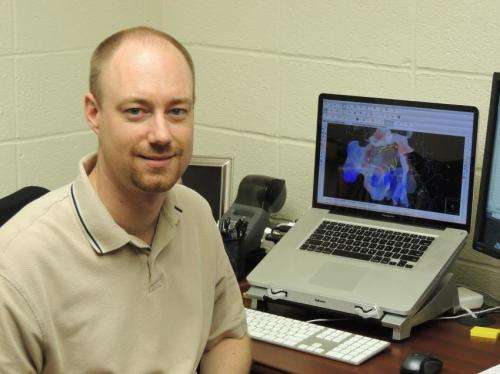Grant to PATH will fund research at SLU's Center for World Health and Medicine

As part of a $15.6 million grant awarded to PATH by the Bill & Melinda Gates Foundation, Saint Louis University's Center for World Health and Medicine has received a $3.13 million, three-year sub-grant from PATH to explore new treatments for pediatric diarrhea, which kills about 600,000 young children around the world each year.
The Gates grant supports PATH's portfolio of projects that explore potential anti-secretory drug targets in the gastrointestinal tract and develop drug candidates to complement oral rehydration therapy.
The research builds upon promising findings that grew out of a collaboration that began in 2011 between the Center for World Health and Medicine and PATH's Drug Development program, established through an affiliation with OneWorld Health.
SLU's Center for World Health and Medicine and PATH's Drug Development program will study multiple drug compounds and targets at various stages of development with a goal of identifying at least two drugs that, after testing in animal models, are promising enough to be studied in clinical trials. The Center for World Health and Medicine will have eight scientists working on the grant to varying degrees—an experienced drug discovery team that includes biologists, chemists and pharmacologists.
"We're trying to repurpose drugs for childhood diarrhea that pharmaceutical companies had developed as therapy for hypertension that also target a similar pathway in the intestine. Researchers conducting clinical trials found these drugs are safe but didn't work to lower the blood pressure of study participants," said Marvin Meyers, Ph.D., director of medicinal chemistry for the Center for World Health and Medicine, and one of SLU's lead researchers on the project.
"For our purposes, that's good because we don't want to lower blood pressure. We want to stop the loss of fluids from acute secretory diarrhea, which strikes quickly and leads to a life-threatening loss of water and electrolytes in young children who live in developing countries. We also are looking at other drug candidates that have an entirely different target and developing other assays that improve our ability to identify other potential drugs."
Diarrhea is the second leading cause of death of young children worldwide. It is particularly lethal in developing countries where the lack of clean drinking water, malnutrition, inadequate sanitation, misunderstanding about the illness, and poor access to modern medical care at hospitals take their toll on children under age 5.
The disease can be caused by bacteria such as Vibrio cholerae and enterotoxigenic E. coli, viruses such as rotavirus, and parasites such as Cryptosporidium. Children who survive frequently have recurrences, are susceptible to other infectious diseases and may have slowed physical and mental development.
"If a toddler in the United States develops severe diarrhea, he or she is hospitalized and receives 'rehydration therapy' or intravenous fluids to replenish the fluids that have been lost. Kids here typically recover quickly," Meyers said.
"In developing countries, children frequently don't have easy access to hospitals. They are given oral fluids at home, which are critical to their recovery but can cause diarrhea to get temporarily worse. Seeing their children continue to be sick, parents sometimes stop giving their children rehydrating fluids and they get sicker and sometimes die. In partnership with PATH, we are trying to find a treatment that stops the diarrhea by inhibiting secretions inside the intestines so children can receive the oral fluids they need to recover."
Researchers also are placing a priority on ensuring the medication is convenient and easy to administer.
"One of our goals is to come up with a drug compound that can be given once a day, a treatment option that is not currently available," Meyers said.
As a key component of the sub-grant, SLU and PATH will seek partnerships with pharmaceutical companies to obtain licensing rights, leverage expertise in drug discovery and research and build partnerships. The goal is to ensure the drug candidates will have the opportunity to be evaluated in the clinic, and if found effective, will eventually reach the children most in need.
Provided by Saint Louis University